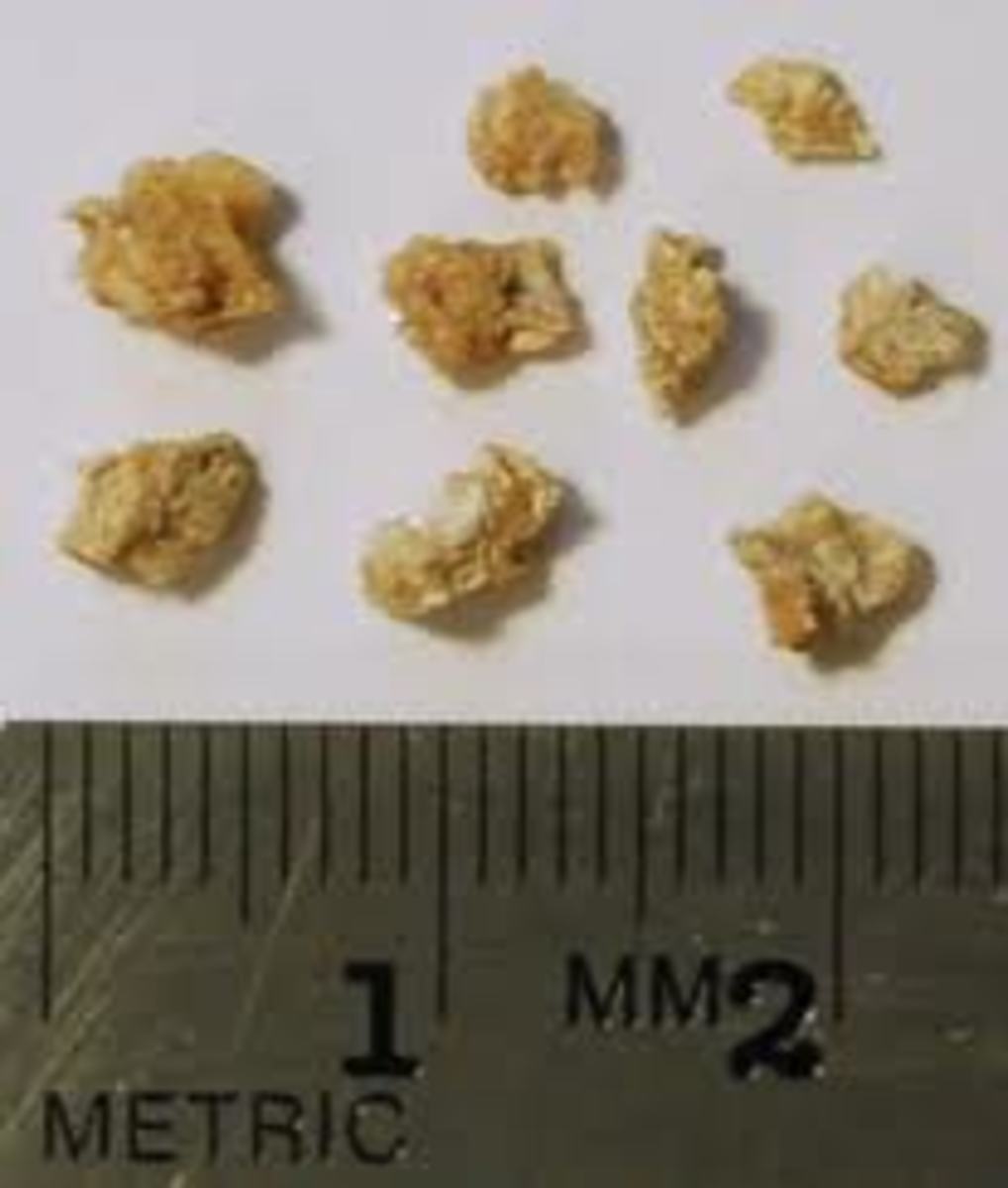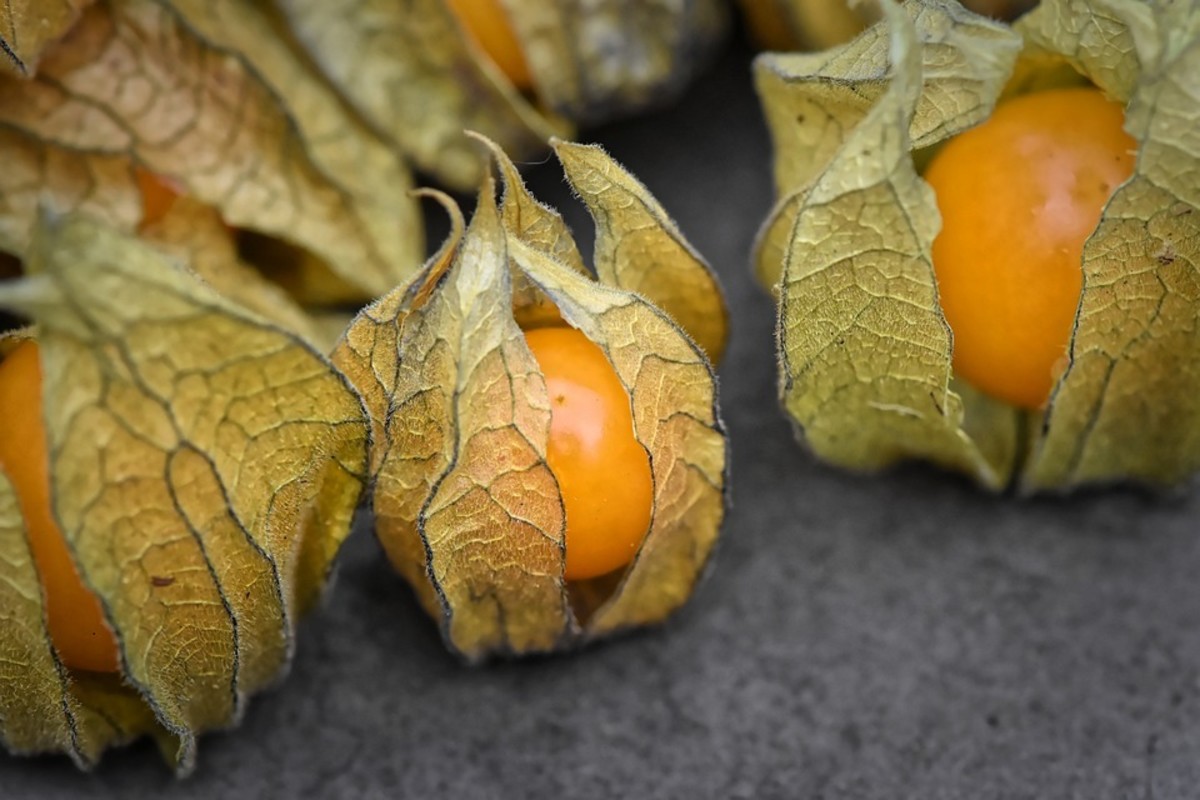Getting Rid of Kidney Stones
Preventative Strategies
How to get rid of and to prevent kidney stones.
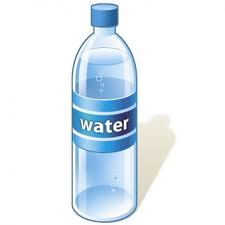
Drinking adequate fluids
It's crucial to note that drinking enough fluids is the key to preventing all types of kidney stones. Simply hydrating and making the urine dilute is the first step in prevention.
Water: This is THE BEST liquid to drink....period. Water contains no sugar and is healthy for you. Drinking water should be the first choice of fluid.
Lemon Juice: It has been researched that lemon juice has a preventative effect on the formation of stones as well as preventing already formed stones from getting any larger. The key to note here is that they did the study with PURE LEMONS. Not lemon juice with sugar that you can purchase in stores. The reason why lemon juice works is because of it's citrate content and how it can raise the citrate levels in the urine. This may protect against calcium stone formation.
Orange Juice: Research has shown that drinking orange juice also increases citrate levels even more than lemon juice, however, it also increases oxalate levels, so it's not recommended. You'll conflicting studies on this. I would stay away from orange juice.
Cranberry Juice: This juice contains oxalates, which increases the risk of calcium oxalate stones. However, uric acid stones can be formed as a result, too. On a side note, it can prevent urinary tract infections (UTI's) and can be helpful in reducing struvite and brushite stones. However, those types of stones are less common.
Apple Juice: This juice, just like cranberry juice, contains oxalates and increases your risk of calcium oxalate stones.
Grapefruit Juice: Numerous studies have found that there is an increased risk of stones forming if drinking grapefruit juice.
Soft Drinks: Patients with stones should avoid dark colored cola drinks. Most of these beverages contain phosphoric acid. The phosphoric acid can reduce citrate levels in the urine. A reduction in citrate levels can lead to stone formation. So, avoid dark colored colas.
Citrus Soft Drinks: There have been studies that have been conducted in which they have found that diet citrus drinks, such as 7-UP and Sprite can have a preventative effect on stone formation. This is due to these citrus drinks having citrate in them. More studies should be conducted for this before you go out to drink a ton of these sugary drinks. An alternative, however, would be to opt for the diet versions of these drinks.
Alcoholic beverages: Wine may protect against kidney stones. However, alcoholic beverages contain purines, which increases the risk of uric acid stones and also gout. Drink in moderation.
Coffee & Tea: There is conflicting information regarding coffee and tea. There is some research that has been done which report a lower risk of stone formation in coffee and tea drinkers. And there are other research notes that state that drinking coffee is bad for stones. Many have also stated that drinking regular tea contributes to overall stone formation. However, this is not the case when drinking green tea. The verdict is still out on this one. If you're a coffee drinker, I'd drink coffee in moderation. And if you like tea, I would drink green tea instead of black tea or regular tea.
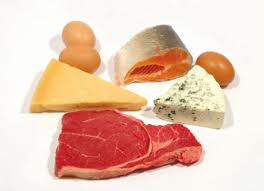
Restriction / Reduction of Animal Protein
Protein Restriction. Protein intake increases uric acid, calcium and oxalate levels in the urine. By doing this, it also decrease citrate levels. For people who have diets high in protein, in particular, meat proteins, have been consistently connected with kidney stones. Animal protein comes from a variety of sources which include red meats, turkey, chicken, fish and eggs.
As a start, it's recommended to stay within less than 5-6 ounces of protein a day. To gauge this number, one serving of 3 ounces is the size of a deck of cards. Therefore, if you are eating a piece of turkey, chicken, beef, or fish, it should adhere to this size in ounces.
Many will say this is small, and it is. The point is to reduce intake of protein.
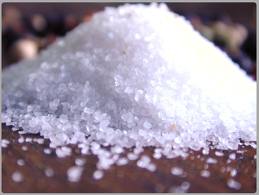
Restriction / Reduction of Sodium (Salt) Intake
Why restrict salt? It's because salt intake increases the amount of calcium in your urine. If you have had a stone in the past, intake should be limited to less than 3 grams or 3,000 milligrams of salt per day. The RDA intake for sodium is 2,400 milligrams or 2.4 grams per day. I would suggest at least getting down to 2 grams or 2,000 milligrams Sodium also may increase the levels or urate, which is a crystalline substance that can trigger the formation of calcium oxalate stones.
If you adhere to a low-sodium and moderate protein diet containing normal levels of calcium can reduce the recurrence of stones as compared to a low-calcium only diet. Keep in mind, when you do have calcium oxalate or calcium phosphate stones, the general thinking is to reduce your calcium intake. This is NOT the case. Reducing calcium has been known to actually harm you and can potentially cause stones to reoccur.
It is very difficult, however to stay away from added salt in foods. The only true way to stay away from all forms of sodium that is added to foods is to cook all foods yourself. And this may (or may not) be the best option.
If you have overdone it with sodium for a particular meal, remember to drink added water to be sure that the salts will not be building up in your system.
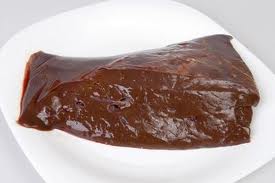
Purine Restriction for people who form Uric Acid Stones
Having a high intake of purines can increase the amount of uric acid present in the urine. If you are at risk for having uric acid stones, you should reduce and/or restrict intake of food and beverages that contain high levels of purines.
First, what are purines? Purines are generally high protein foods. They include organ meats like kidney, fish such as mackerel, herring and sardines. Yeast is also considered a high purine food.
There are some diet and lifestyle changes that may help prevent uric acid stones. Here are some tips:
- Avoid the following foods, which contain high purines-(Anchovies, Brains, Gravies, Kidneys,Liver, Sardines, Sweetbreads).
- Avoid and limit these other high and moderate level purine food-(Asparagus, Bacon, Beef, Bluefish, Bouillon, Calf tongue, Carp, Cauliflower, Chicken, Chicken soup, Codfish, Crab, Duck, Goose, Halibut, Ham, Kidney beans, Lamb, Lentils, Lima beans, Lobster, Mushrooms, Mutton, Navy beans, Oatmeal, Oysters, Peas, Perch, Pork, Rabbit, Salmon, Sheep, Shellfish, Snapper, Spinach, Tripe, Trout, Tuna, Turkey, Veal, Venison).
- Limit how much meat you eat at each meal. Ideally, portion size should be 3-5 ounces or less.
- Avoid fatty foods with your meal. Such fatty foods like salad dressings, ice cream and fried foods.
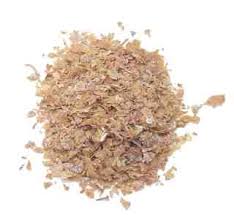
Eat more Fiber Rich Foods
Eating more fiber may be beneficial for people with kidney stones because it is likely that low fiber is a part of their diet. People with stones tend to eat less fiber and more protein. A variety of high-fiber plant based foods contain phytates, which appears to help prevent crystallization of calcium salts (both oxalate and phosphate). Phytates are found in legumes, wheat and rice bran.
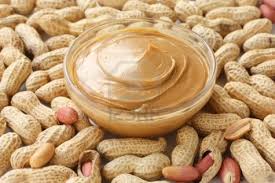
Restriction of oxalate-rich foods
Most people with calcium oxalate stones should not avoid oxalate-rich foods unless their doctor specifically recommends a restrictive diet. Oxalate binds with calcium in the intestine, which may actually reduce calcium absorption. Some studies indicate that eating foods containing oxalates and calcium together may reduce the risk of stones. Most of the foods that contain oxalates are important for good health. Limiting oxalates may be harmful in people with bowel disorders in which there is malabsorption.
- Foods high in oxalic acid include beets, soy, beet tops, black tea, chenopodium, chocolate, cocoa, dried figs, ground pepper, lamb, lime peel, nuts, parsley, poppy seeds, purslane, rhubarb, sorrel, spinach, and Swiss chard.
- Foods containing moderate amounts of oxalates include beans (green and wax), blackberries, blueberries, carrots, celery, coffee (roasted), concord grapes, currants, dandelion greens, endive, gooseberries, lemon peel, okra, green onions, oranges, green peppers, black raspberries, strawberries, and sweet potatoes.
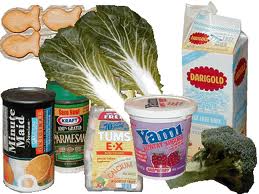
Maintaining Adequate Calcium Intake
It is important to get adequate calcium intake from food (not supplements). As previously stated, calcium does not seem to affect the formation of stones when provided by food (dietary calcium) as opposed to decreasing intake, or by taking supplements. This potentially could cause a problem for those who are lactose intolerant or have a milk allergy. In those situations, then it is important to get enough calcium via daily vitamins or taking a calcium supplement. IF taking a supplement, try to take one that contains calcium citrate instead of calcium carbonate. Calcium citrate is more efficiently absorbed compared to carbonate. It is, however, more expensive.
There are a variety of foods that one can eat that are non-dairy. However, the majority of the foods high in calcium are from dairy foods.
The recommended daily intake for calcium for men and women is 1,000 to 1,300 milligrams
It is important, however, to watch your sodium intake, as previously stated. High intakes of sodium and protein have been known to affect the calcium balance in the body. However, if adequate calcium intake is evident in the individual, it's minimized by that intake.
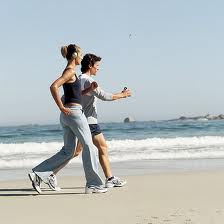
Exercise Regularly
It is important to exercise regularly. Just exercising for 10-15 minutes a day, 5-days a week will help. You don't have to do aerobics or any type of heavy things. All you need to do is walk and this should be more than adequate. Get out, get in the sun, and just enjoy and relax when exercising. Take along your iPod or MP3 player and just relax.
Why exercise if you have kidney stones? There are many different answers.
1. If your kidney stone is in your ureter, and you're passing it, the motion and bounce of walking will help move it further down to reach the bladder. This is the exercise and gravity working in your favor to help pass the stone more quickly. This method, combined with medication from your doctor can be beneficial to you.
2. A sedentary lifestyle causes calcium deposits. With regular exercise, it helps to keep your bones strong and increase circulation. With this added circulation, calcium minerals go to the right places and where they are needed rather than building up in your organs (and, ultimately leading to kidney stones).
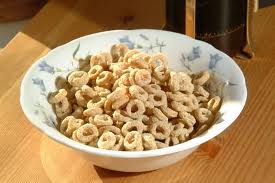
Vitamin B6
Vitamin B6 is somewhat shown to help people who have hyperoxalura. However, it is advised that patients not treat themselves and mega dose on Vitamin B6. If taken in high doses (500-2,000 milligrams a day over a long period of time) it can cause nerve damage with loss of balance and numbness in the feet and hands.
Food sources of Vitamin B6 can be found in: meats, oily fish, poultry (turkey & chicken), whole grains, fortified breakfast cereals, soy beans, avocados baked potatoes WITH skin, watermelon, bananas, and peanuts. If a person has a normal diet, it's easy to get the recommended intake of Vitamin B6.
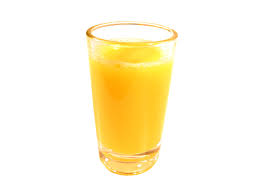
Limit excess Vitamin C
Vitamin C, also known as ascobic acid, may change in the body to form tiny crystals. Those crystals are called oxalates. These oxalate crystals do not dissolve. For people with hyperoxalura (having too much oxalate in the urine), they should avoid Vitamin C supplementation. Even if you have normal oxalate levels, a higher consumption of Vitamin C (greater than 1,000 milligrams per day) may increase the risk of kidney stones.

Stress Management
According to a study, having stress can cause stones. It has shown that even positive stresses such as marriage or the birth of a child can cause stones. Of course negative events such as financial hardship or death are equal in nature of stress. There is a definite connection that people who do have kidney stones have significantly more incidences of stress or stresses Because everyone handles stress in a different way, it is important to practice to relax. Relaxing can help ease your nerves, is more healthy for you and your heart, and of course, stones.
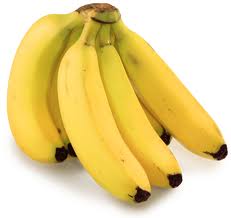
Potassium Supplementation & Eating Potassium-rich foods
It has been shown that increasing potassium intake and eating potassium-rich foods can lower the risk of kidney stones. This is because if your potassium is low, calcium is more excreted.


